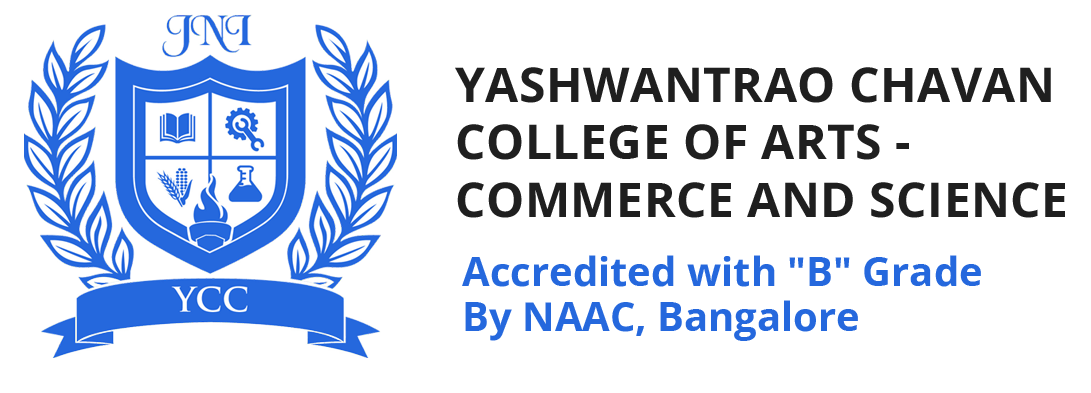Under Graduate Courses
Bachelor of Science- Information Technology (BSc-IT):
| Semester 1 | Semester 2 |
| Paper Name | Paper Name |
| 1011111 – Programming with C | 1012111 – OOPs with C++ |
| 1011112 – Database Management Systems | 1012112 – Web Designing |
| 1011113 – Practical I (Programing with C & DBMS) | 1012113 – Practical II -(OOPs and web Designing) |
| 1011411 – Combinational and Sequential Design | 1012411 – Assembly Language Programming |
| 1011413 – Fundamentals of Telecommunication Systems | 1012413 – PL/SQL |
| 1171312 – Entrepreneurship Management (OE) | 1052211 – Calculus -I |
| 1461311 – Content Writing | 1232312 – Introduction to Marketing |
| 2511511 – Introduction to Communication Skills (B.Sc.) | 1282312 – Leadership management |
| 2521612 – National Service Scheme | 2512511 – Lekhan kaushalya 1 (karyalayin lekhan vyavhar v patravhyavhar) (Marathi) /
2512517 – Hindi Bhasha – Kaushal Ke Adhar |
| 2531511 – Indian Knowledge System | 2522611- NATIONAL SERVICE SCHEME (Leadership and Community Engagement ) |
| 2541511 – Indian Constitution | 2542511 – Environmental Management & Sustainable Development -II |
| Sem-III | Sem-IV |
| Paper Name | Paper Name |
| Python Programming | Core Java |
| Data Structure | Introduction to Embedded Systems |
| Computer Networks | Computer Oriented Statistical Techniques |
| Database Management Systems | Software Engineering |
| Applied Mathematics | Computer Graphics and Animation |
| Sem-V | Sem-V |
| Paper Name | Paper Name |
| Software Project Management | Software Quality Assurance |
| Internet of Things | Security in Computing |
| Advanced Web Programming | Business Intelligence |
| Linux System Administration | Principles of Geographic Information Systems |
| Enterprise Java | Cyber Laws |
Programe Outcome (POs)
Department of Science- Bachelor of Scince in Information Technology (BSc IT)
A Bachelor of Science in Information Technology (BSc IT) program typically preparesstudents for careers in the information technology field. The program covers a broad range oftopics related to the design, development, and management of computer-based informationsystems.Program outcomes of a BSc IT program include:
PO1. Technical skills: Students should develop strong technical skills in areas such asprogramming languages, database design, networking, cybersecurity, and softwaredevelopment.
PO2. Problem-solving skills: Students should be able to analyze complex problems anddevelop solutions using information technology tools and techniques.
PO3. Communication skills: Students should be able to communicate effectively withcolleagues and stakeholders, both verbally and in writing.
PO4. Teamwork and collaboration: Students should learn to work effectively in teamsand collaborate with others to develop and implement information technologysolutions.
PO5. Ethical and professional conduct: Students should be aware of ethical issues ininformation technology and demonstrate professional conduct in their work.
PO6. Lifelong learning: Students should have a strong foundation in informationtechnology that will enable them to adapt to new technologies and continue learningthroughout their careers.Overall, a BSc IT program aims to prepare students to be competent, skilled, and ethicalprofessionals in the field of information technology.
Programe Specific Outcome (PSOs)
Department of Science- Bachelor of Scince in Information Technology (BSc IT)
PSO1 Graduates will have a strong foundation in information technology concepts and technologies, including programming languages, databases, networks, and systems development.
PSO2 Analyzing complex problems and developing effective solutions using information technology tools and methodologies.
PSO3 Attain proficiency in programming languages and software development practices, enabling them to design and create software applications.
Course Outcome (COs)
Department of Science- Bachelor of Scince in Information Technology (BSc IT)
FYIT SEMESTER I
USIT101 Imperative Programming
CO1.Apply the fundamental concepts of programming to write simple programs in
CO2.Understand the history and evolution of programming languages and
CO3.Synthesize programming logic using pseudocode and flowchart symbols to develop
CO4.Evaluate program logic to identify and fix errors and
CO5.Create efficient and effective programs by applying programming concepts and
CO6.Understand the program development cycle and the importance of debugging and
CO7.Apply conditional statements and loops to decision making within a
CO8.Understand the use and implementation of arrays and strings in
CO9.Evaluate program structure and design to ensure readability, maintainability and
CO10.Create and use functions and pointers to modularize and optimize program
USIT102 Digital Electronics
CO1.It is designed for computer students who have limited or no previous exposure to python data
CO2.To learn different architecture and organization of memory
CO3.After studying this subject student will understand actual practical process, organization and control
CO4.It will help the student to understand how digital and analog system, device and components work on number system
CO5.It will help the students to understand of digital system and operations of a digital.
